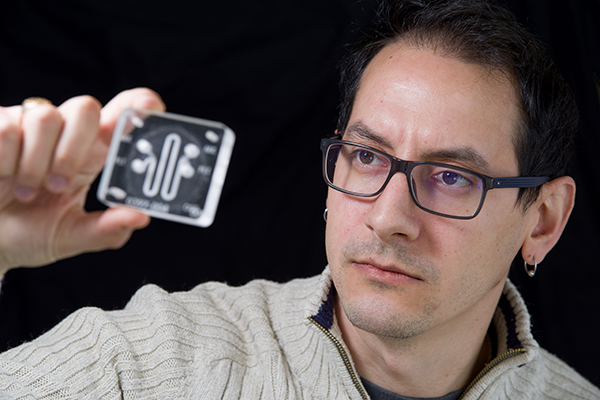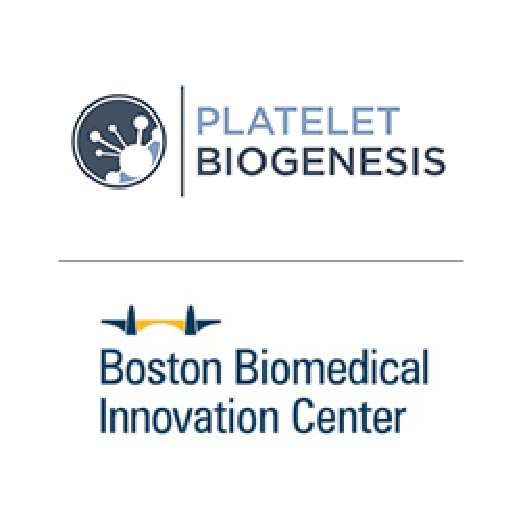 Every day in the United States, 7,000 units, or almost one thousand gallons, of platelets are needed for transfusions. Platelets—blood cells that form clots—are essential for treating cancer patients, trauma victims, and organ recipients. Like red blood cells, our medical platelet supply comes from human donors. Unlike red blood cells, platelets are only viable for five days, and are in constant demand.
Every day in the United States, 7,000 units, or almost one thousand gallons, of platelets are needed for transfusions. Platelets—blood cells that form clots—are essential for treating cancer patients, trauma victims, and organ recipients. Like red blood cells, our medical platelet supply comes from human donors. Unlike red blood cells, platelets are only viable for five days, and are in constant demand.
The company Platelet Biogenesis is trying to reduce our reliance on donor-obtained platelets by making them in a lab, a feat that would have sounded like science fiction just a few decades ago.
When co-founder and CEO Jonathan Thon was studying platelets in graduate school, he was only investigating how to increase their shelf-life. By the time he started his postdoctoral work in Boston, he didn’t just want to make donated human platelets last longer, he wanted to make them from scratch. Well, from stem cells.
Thon figured if he could understand how the body makes platelets from stem cells, he could increase the efficiency of producing lab-made platelets, which was only about one percent of what the body makes. He knew platelets were made in the blood, where cells stuck to blood vessels are under constant flow pressure. So he built a micro-bioreactor that exposed stem cells to those same flow conditions. Not only did the reactor produce platelets that appeared identical to human-made platelets, they were produced in large amounts.
In 2014, Thon was awarded a $200,000 grant from the National Institutes of Health (NIH) through the Boston Biomedical Innovation Center to transfer the platelet manufacturing technology into a business. Thon says this funding has been the most impactful support to date, a notable comment since the company was just awarded 56 million from the Biomedical Advanced Research and Development Authority (BARDA) through the Department of Health and Human Services.
The company Platelet Biogenesis is trying to reduce our reliance on donor-obtained platelets by making them in a lab, a feat that would have sounded like science fiction just a few decades ago.
In 2016 Platelet Biogenesis received a 1.5 million Direct to Phase II Small Business Innovative Research (SBIR) grant from the National Heart Lung and Blood Institute that allowed them to verify the safety and quality of platelets in humanized mice. The same year they received funds through the NIH Commercialization Readiness Program to develop a proprietary method to produce human platelets, a key step in product commercialization. Then in 2017, the company was awarded a Phase I SBIR grant to study how their platelets could help victims of a nuclear disaster, which prevents bone marrow from generating platelets and other blood cells. Thon and his colleagues also recognized the necessity of having stored platelets during a nuclear disaster, when supply likely drops but need skyrockets.
 In the five years since its founding, Platelet Biogenesis has grown to almost 45 employees with plans to expand to 60 by next year. They’ve been recognized many times for their technology, including winning both the Amgen Golden Ticket award, which supplied the company with lab space for a year, and the BioSciKin in Business Competition Award in 2016. Aside from the 56 million Platelet Biogenesis has obtained from BARDA, they’ve also received 26 million in venture capital funding, with their total funding amount equaling more than 100 million. Thon says that these latter funds were heavily made possible from early NIH funding, and the validation of their technology that came with it.
In the five years since its founding, Platelet Biogenesis has grown to almost 45 employees with plans to expand to 60 by next year. They’ve been recognized many times for their technology, including winning both the Amgen Golden Ticket award, which supplied the company with lab space for a year, and the BioSciKin in Business Competition Award in 2016. Aside from the 56 million Platelet Biogenesis has obtained from BARDA, they’ve also received 26 million in venture capital funding, with their total funding amount equaling more than 100 million. Thon says that these latter funds were heavily made possible from early NIH funding, and the validation of their technology that came with it.
Platelet Biogenesis researchers plan to start clinical trials in either 2020 or 2021, which will put the company on track to begin selling platelets to hospitals as early as 2025. Aside from supplying hospitals and medical centers with a steady amount of platelets, Thon envisions aiding the military to support transfusions both for injured soldiers as well as local civilians in need. He adds,” [Because] platelets are one of the most needed blood products today...I think the product will have a transformative effect on public health.”







